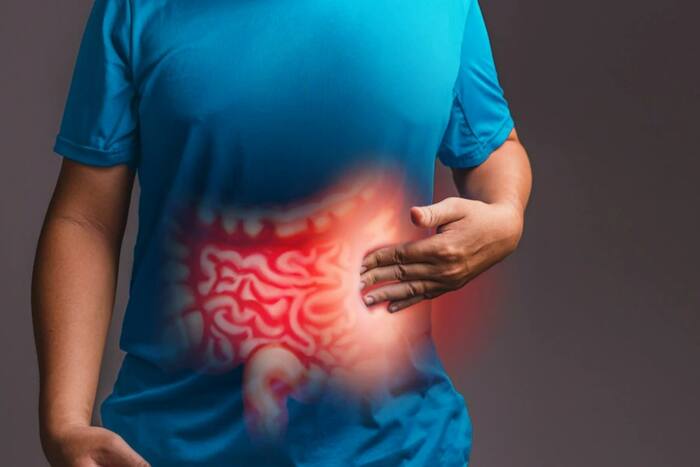According to ongoing research, there is still much to learn about how and why food choices affect cancer risk.

There is mounting evidence that the foods we eat may increase our chance of developing some types of cancer. According to recent research by the World Cancer Research Fund International, stomach cancer is one of them. It is the 4th most common cancer in India. Cancer can develop in any part of your stomach. Though most stomach cancer cases in the western population develop at the junction of your stomach and oesophagus (gastroesophageal junction), among South Indian population cancer of lower part of the stomach called pylorus is common. Stomach cancer is much more common in Asian countries than in the west.
November is observed as ‘Stomach Cancer Awareness Month’ every year to raise awareness on the life changing condition, the risks involved and how to mitigate them.
Stomach Cancer And Diet
According to ongoing research into nutrition and cancer risk, there is still much to learn about how and why food choices affect cancer risk. Some foods prone to cancer are as follows:
1. Diets High in Salt
An excessively salty diet and pickled food may make several cancers more likely, especially stomach cancer. Indians are generally fond of pickles. Moreover, eating foods high in salt may cause the synthesis of N-nitroso compounds (NOCs). Many of these have been identified by the IARC as possibly carcinogenic to humans. Also, high salt intake has been linked to an increased risk of several cancers, including esophageal and stomach cancer.
According to Centers for Disease Control and Prevention, reducing the amount of sodium in your diet to about less than 2,300 milligrams a day is ideal.
2. Food Infection
Food poisoning with a bacteria called H. Pylori which is found in unhygienic food is known to cause stomach cancer. This infection is very common in India is estimated to be seen in 50-80% of population. H. Pylori infection is known to be associated with stomach cancer of pylorus part of stomach is common in India. This infection is spread by food contamination and is also responsible for gastritis, which is very common. According to scientists, high salt consumption has been linked to an increased risk of Helicobacter pylori infection as this bacteria can live in salted food. H. pylori infections considerably increases the stomach cancer risk.
3. Red and Processed Meats
Recent research findings state that excessive consumption of processed meat is strongly associated with several cancers. According to a 2018 analysis by Trusted Source, consuming more processed meat like sausages, up to 60 grams (g) per day, and red meat, up to 150 g per day, elevated the risk of colorectal cancer by nearly 20%. According to a World Health Organization assessment, processed meats are carcinogenic to humans, increasing your risk of colorectal cancer by 18%.
Compounds that are formed during high-temperature cooking and processes can cause cellular damage. This can initiate the development of cancerous cells. Hence, diets rich in processed food and red meat are linked to increased risks of various malignancies, including stomach cancer.
4. Ultra-processed foods
Deeply processed food ingredients derived from industrial processing, such as protein isolates, hydrogenated oils, high-fructose corn syrup, flavour enhancers, artificial sweeteners, and thickeners, are frequently included in food products.
Packaged sweet and savoury snack foods, soda and energy drinks, morning cereals, reconstituted meat products, frozen pizzas, candies, and more are ultra-processed meals and drinks. Diets rich in ultra-processed foods, such as western-world diets, greatly raise the chance of developing stomach cancers.
5. Food Supplements
Specific food supplements and chemical contamination from food packaging may also contribute to the elevated risk of cancer by eating foods that have undergone extensive processing. Consuming foods that have undergone extreme processing is associated with several other chronic diseases, such as type 2 diabetes, heart disease, and an increased risk of death from all causes. To lower the chance of acquiring these illnesses, attempting to restrict the consumption of ultra-processed products as much as possible is vital.
Research indicates that some dietary habits and particular foods may raise the risk of acquiring certain cancers, even though numerous factors, including ones that a person cannot control, might affect a person’s risk of developing cancer.
Even though there is still much to understand about how nutrition affects the onset and course of cancer, drastically limiting or avoiding these foods and changing dietary habits will probably improve general health and lower someone’s chance of getting some cancers.
(With inputs fromDr. Sandeep Nayak P, Director – Department of Surgical Oncology & Robotic & Laparoscopic Surgery, Fortis Hospitals, Bannerghatta Road, Bengaluru)
Stay connected with us on social media platform for instant update click here to join our Twitter, & Facebook
We are now on Telegram. Click here to join our channel (@TechiUpdate) and stay updated with the latest Technology headlines.
For all the latest Lifestyle News Click Here
